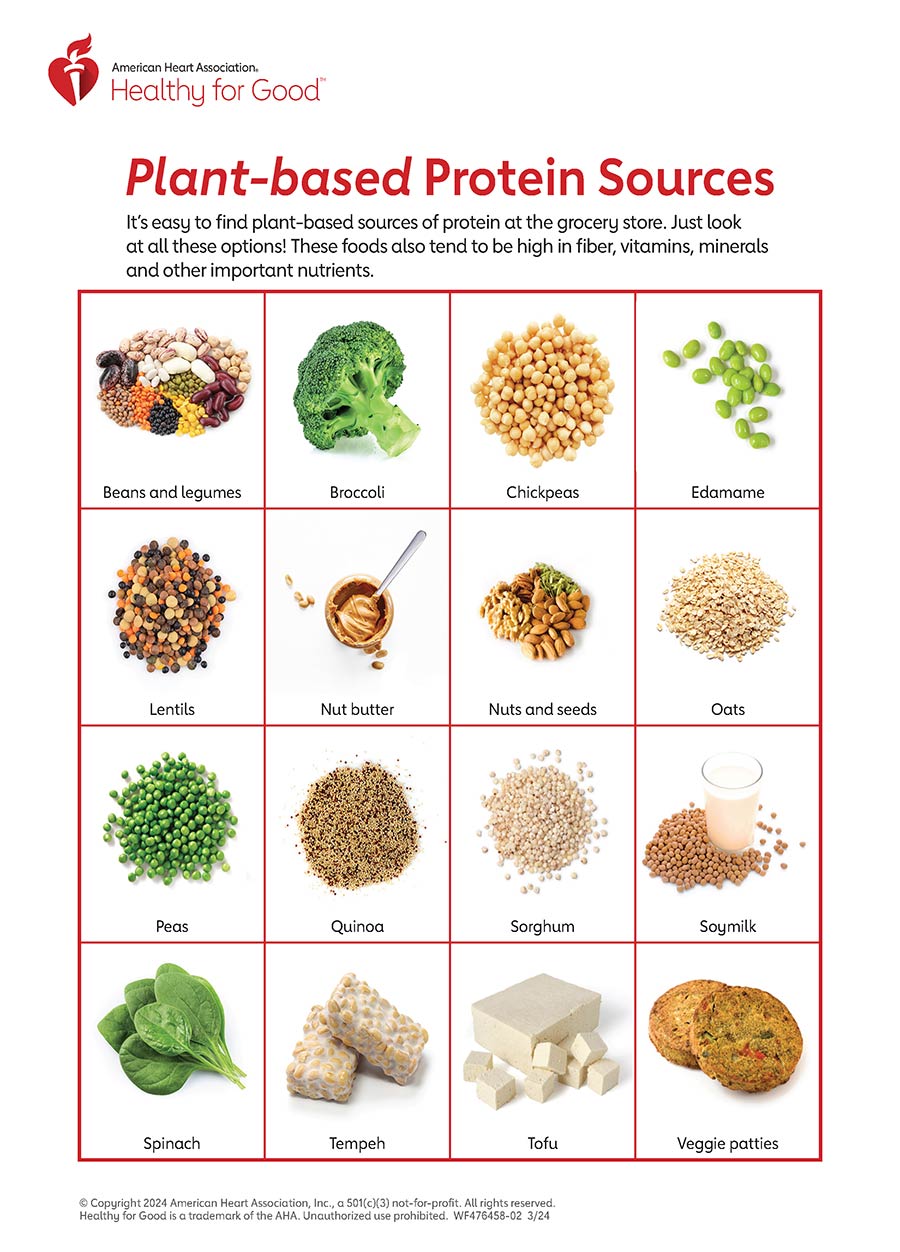Gluten Free BBQ Sauce Recipes That Even Meat-Eaters Will Love
Gluten Free BBQ Sauce Recipes That Even Meat-Eaters Will Love
Blog Article
All Regarding Healthy Food: Benefits of Taking On Plant Based Options
The discussion surrounding plant-based diet regimens has actually gotten considerable interest in recent years. Numerous individuals are discovering the possible health and wellness benefits, nutritional benefits, and environmental impacts connected with these nutritional options. As people become extra familiar with their food's influence on well-being and sustainability, inquiries develop regarding the practicalities of taking on such a way of living. What details adjustments can one anticipate, and how might these selections improve not only individual health and wellness but additionally the world's future?
Understanding Plant-Based Diet Regimens
Many individuals associate plant-based diet plans mainly with vegetarianism or veganism, these diet plans can encompass a large range of eating patterns that focus on whole, minimally refined plant foods. Such diets usually include fruits, veggies, entire grains, nuts, vegetables, and seeds, while limiting or removing animal products. This adaptability allows individuals to customize their nutritional choices according to individual choices and nutritional requirements. Some might take on a primarily plant-based diet plan while still periodically consuming meat or dairy, commonly described as a flexitarian approach. The focus stays on including more plant foods, which can result in a diverse variety of dishes and flavors. Comprehending these different analyses of plant-based consuming is essential for appreciating its availability and allure in modern food society.
Health Conveniences of Plant-Based Foods
The wellness advantages of plant-based foods are substantial, providing a nutrient density advantage that supports general wellness. Research study suggests that these foods can enhance heart wellness and play a crucial role in effective weight management. By incorporating more plant-based options, individuals might boost their nutritional selections and advertise long-lasting wellness.
Nutrient Thickness Advantage
Nutrient thickness plays an essential duty in the wellness advantages of plant-based foods, making them an engaging option for those seeking a balanced diet. Plant-based foods, such as fruits, vegetables, beans, nuts, and entire grains, are usually abundant in important vitamins, minerals, and anti-oxidants while being reduced in calories. This high nutrient thickness enables individuals to eat less calories while still satisfying their nutritional needs. Additionally, these foods are loaded with nutritional fiber, promoting gastrointestinal health and assisting in weight monitoring. By integrating nutrient-dense plant-based options, customers can improve their overall health, sustain their immune systems, and reduce the threat of persistent diseases. Inevitably, the nutrient density of plant-based foods underscores their relevance in a health-conscious way of living.
Heart Health Renovation

Weight Administration Assistance
In addition to advertising heart health and wellness, a plant-based diet regimen can significantly help in weight administration. This dietary method highlights entire foods such as fruits, veggies, legumes, nuts, and entire grains, which are usually lower in calories and greater in fiber contrasted to animal-based products. The high fiber web content helps enhance satiety, decreasing total calorie intake. Furthermore, plant-based diet plans are frequently abundant in important nutrients while reduced in unhealthy fats, making it much easier to maintain a healthy weight. Plant Based Chicken. Research indicates that people that adopt a plant-based way of life often tend to have reduced body mass indexes (BMIs) and experience more successful fat burning compared to those who take in meat-heavy diet regimens. Consequently, embracing plant-based alternatives is a tactical selection for reliable weight management
Nutritional Value of Plant-Based Components
Plant-based active ingredients are abundant in essential nutrients, providing a diverse variety of vitamins, minerals, and anti-oxidants that add to total wellness. A contrast of healthy protein resources reveals that while animal items are frequently viewed as premium, many plant-based options provide adequate healthy protein and various other beneficial substances. Recognizing the dietary worth of these components can assist individuals make informed nutritional selections.
Crucial Nutrients in Plants
Nutrient-rich active ingredients located in plants use a diverse array of important vitamins and minerals that contribute greatly to overall wellness. These components are rich in vitamins A, C, and K, which sustain immune function, vision, and blood clotting, specifically. On top of that, plants provide essential minerals such as potassium, magnesium, and calcium, crucial for heart wellness, muscle mass function, and bone toughness. The presence of fiber in plant-based foods help digestion and promotes a healthy and balanced gut microbiome. Anti-oxidants, discovered abundantly in vegetables and fruits, aid battle oxidative stress and decrease swelling. Numerous plant foods are low in calories yet high in nutrients, making them an outstanding choice for those looking for to keep a healthy and balanced weight while making certain ideal nutrient intake.

Comparing Protein Sources
Healthy protein sources vary significantly in their dietary profiles, with plant-based components supplying distinct benefits. Unlike animal healthy proteins, which commonly contain saturated fats and cholesterol, plant healthy proteins often tend to be reduced in these unhealthy components. Legumes, nuts, seeds, and entire grains are rich in essential amino acids, fiber, vitamins, and minerals. Lentils give high protein material along with significant iron and folate, while quinoa is a full protein, providing all nine important amino acids. In addition, plant-based proteins are frequently come with by anti-oxidants and phytochemicals that sustain total health and wellness. The change to plant-based protein resources not only boosts dietary consumption but additionally her comment is here aligns with lasting nutritional practices, decreasing environmental influence and advertising lasting health benefits.
Ecological Influence of Plant-Based Eating
As understanding of environment modification grows, many individuals are exploring sustainable nutritional options that can greatly lessen their environmental impact. Plant-based consuming has become a significant contributor to lowering greenhouse gas discharges, which are mostly related to livestock manufacturing. The growing of fruits, vegetables, veggies, and grains generally requires fewer sources, such as water and land, compared to pet farming. In addition, plant-based diets can lead to lowered logging, as much less land is required for grazing animals or growing pet feed. By changing towards plant-based alternatives, customers can sustain biodiversity and promote healthier ecological communities. On the whole, accepting plant-based eating not only advantages personal health yet likewise stands for a vital action towards environmental sustainability and conservation initiatives.
Conquering Common Misconceptions
While numerous people identify the benefits of a plant-based diet, a number of misunderstandings typically discourage them from totally embracing this way of living. A typical belief is that plant-based diet regimens do not have enough protein; nonetheless, countless plant resources, such as legumes, nuts, and tofu, offer sufficient protein. Additionally, some assume that this diet is costly, when in reality, staples like beans, rice, and seasonal vegetables can be rather inexpensive. Another mistaken belief is that plant-based eating is BBQ Sauces excessively limiting, whereas it really supplies a varied variety of foods and tastes. Lastly, many stress that a plant-based diet may bring about deficiencies, yet with appropriate planning, individuals can acquire all essential nutrients, including minerals and vitamins, while enjoying a wide variety of delicious dishes.
Tips for Transitioning to a Plant-Based Lifestyle
Making the shift to a plant-based lifestyle can be an improving experience, though it frequently needs some guidance to browse the initial modifications. Individuals are motivated to begin slowly, integrating more fruits, veggies, vegetables, and entire grains into their meals while decreasing meat and milk usage. Dish preparation is necessary; preparing an once a week food selection can aid alleviate the modification and prevent last-minute harmful options. Exploring cooking approaches and new recipes can additionally preserve and improve the experience enjoyment concerning plant-based consuming. Additionally, signing up with support groups or neighborhoods can supply inspiration and share important tips. Finally, remaining informed regarding nourishment assurances balanced dishes, stopping shortages while promoting a healthy, gratifying plant-based way of life.
Delicious Plant-Based Meal Concepts
Exploring scrumptious plant-based dish ideas can motivate people to welcome a more nutritious diet plan. One preferred alternative is a hearty quinoa salad, featuring cherry tomatoes, cucumber, and a vibrant lemon-tahini dressing. One more favorite is a tasty lentil stew, loaded with carrots, celery, my review here and great smelling natural herbs, best for a comforting dinner. For morning meal, overnight oats made with almond milk, chia seeds, and topped with fresh berries offer a nourishing start to the day. In addition, a lively vegetable stir-fry with tofu and a variety of vibrant veggies can be a fast yet satisfying dish. Lastly, creamy avocado salute on whole-grain bread, sprayed with seeds and seasonings, uses a straightforward yet flavorful snack. These dishes display the variety and richness of plant-based eating.

Regularly Asked Questions
Can a Plant-Based Diet Plan Give Enough Healthy Protein?
The concern of whether a plant-based diet regimen can supply enough healthy protein prevails. Countless sources, including legumes, nuts, seeds, and entire grains, can satisfy healthy protein requires efficiently, supporting a well balanced and nourishing diet for people.
Are Plant-Based Diets Appropriate for Children?
The suitability of plant-based diet regimens for youngsters depends on careful planning. Appropriate nutrients must be assured, consisting of vitamins, minerals, and proteins. With proper assistance, such diets can support healthy growth and growth in kids.
How Do I Eat Out on a Plant-Based Diet?
Eating in restaurants on a plant-based diet plan includes seeking dining establishments with diverse menus, requesting for adjustments, and exploring vegan-friendly alternatives. Preparation ahead and connecting nutritional preferences can boost the dining experience while keeping nutritional options.
What Are Common Allergens in Plant-Based Foods?
Typical allergens in plant-based foods consist of soy, gluten, nuts, and seeds - BBQ Sauces. Individuals complying with a plant-based diet regimen must understand these irritants and check out labels very carefully to stay clear of unfavorable responses and assure risk-free usage
Can Plant-Based Diets Help With Weight Management?
Research study suggests that embracing a plant-based diet regimen may assist in weight loss because of its generally lower calorie density and greater fiber material. This mix can improve satiation, helping individuals handle their calorie intake effectively. Several people associate plant-based diets mainly with vegetarianism or veganism, these diet plans can include a vast range of consuming patterns that prioritize entire, minimally processed plant foods. Nutrient density plays an important function in the health advantages of plant-based foods, making them an engaging choice for those seeking a balanced diet plan. Plant-based diets have actually been shown to considerably enhance heart wellness, as they frequently include elements that sustain cardio feature. In enhancement to advertising heart health and wellness, a plant-based diet plan can significantly help in weight administration. An usual belief is that plant-based diet regimens lack enough healthy protein; nonetheless, many plant resources, such as vegetables, nuts, and tofu, give sufficient protein.
Report this page